Posted on October 1, 2018 by Michelle Skidmore
Nearly 200 attendees from the tech industry and nonprofit and government sectors gathered at the UTSA Downtown Campus on Sept. 25, also referred to as Tech Tuesday, to engage in a very engaging discussion on the importance of digital inclusion. The event was sponsored by Tech Bloc, the UTSA College of Public Policy, Heavy Heavy, and the City of San Antonio in partnership with the Digital Inclusion Alliance of San Antonio and Goodwill Industries. The goal was to raise awareness about the digital divide and its social and economic effect on the community.
The goals for the forum were to raise awareness about the digital divide and its social and economic effect on the community, learn solutions that are being developed and implemented, and discover the ways you can get involved.
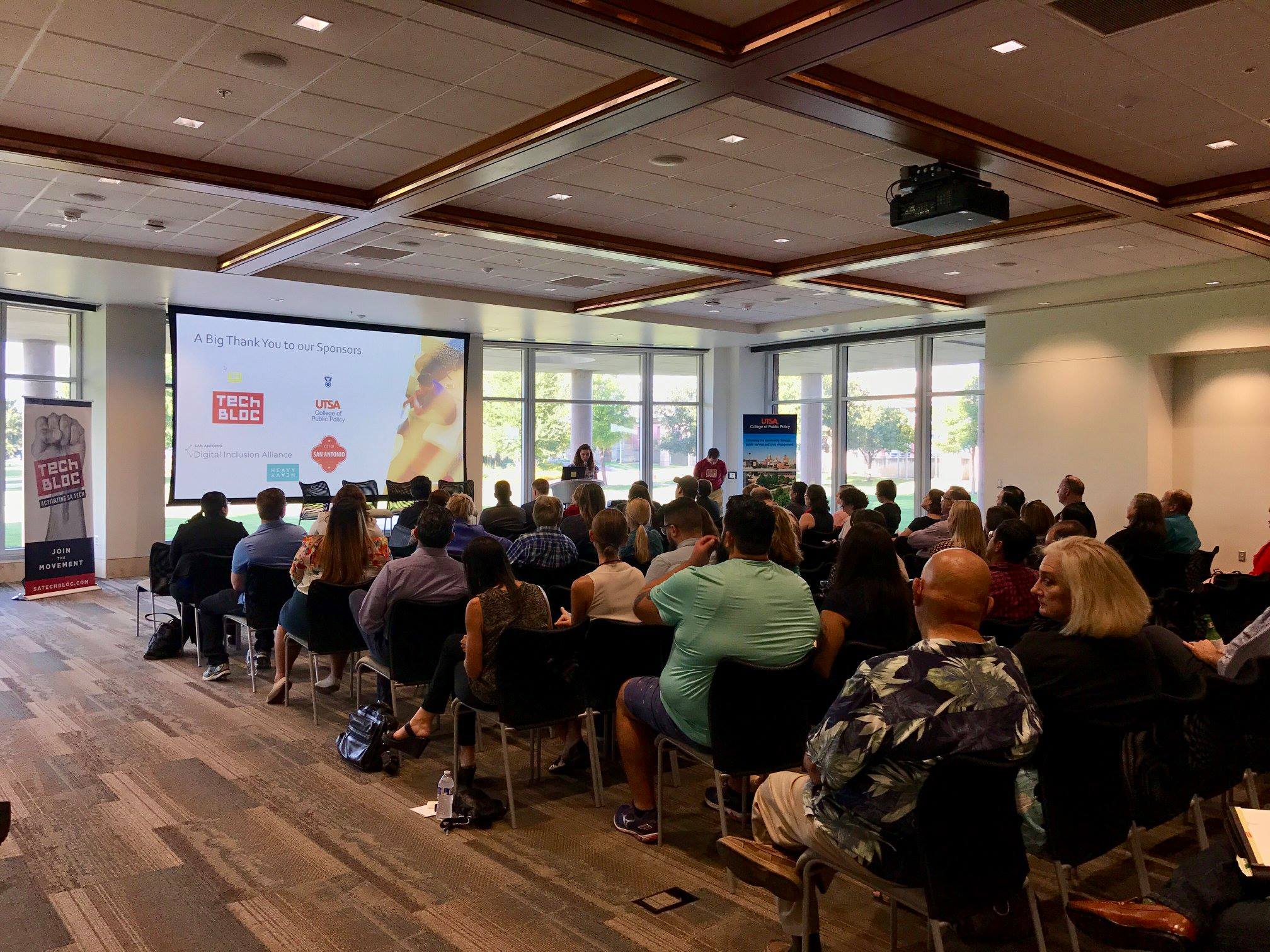
Participants meet in La Villita for the presentations. Photo courtesy of TechBloc
The event was geared toward engaging the tech community toward identifying strategies to help San Antonio remain competitive in the digital economy. The audience consisted of members of the Digital Inclusion Alliance of San Antonio, information technology professionals, library professionals, nonprofit and government leaders, and small business owners. Angelique Rivera, Vice-President of Business Services for Goodwill Industries of San Antonio, opened it up with thanking the sponsors and partners for allowing the event to come to fruition. Matthew Reedy, Information Technology Director for USAA, moderated the event and introduced the panelists. Panelists were Jordana Barton, MPA senior advisor for Community Development at the Federal Reserve Bank of Dallas; Craig Hopkins, Chief Information Officer, City of San Antonio; Jo Anna Alvarado, Director of Innovative Technology from the San Antonio Housing Authority (SAHA); Steve Hussain, Chief Mission Services Officer of Goodwill Industries. Panelists delivered excellent presentations on digital equity and affordability. In today's world, digital skills are paramount to one's ability to function as a consumer. During the forum, it was clear the audience had an understanding of what the problem really is - that digital access should be as basic as breathing and inclusive to all.
Hopkins says that digital inclusion is not just about connectivity, but about making sure those who need the access to internet can afford it and can gain digital literacy skills to succeed.
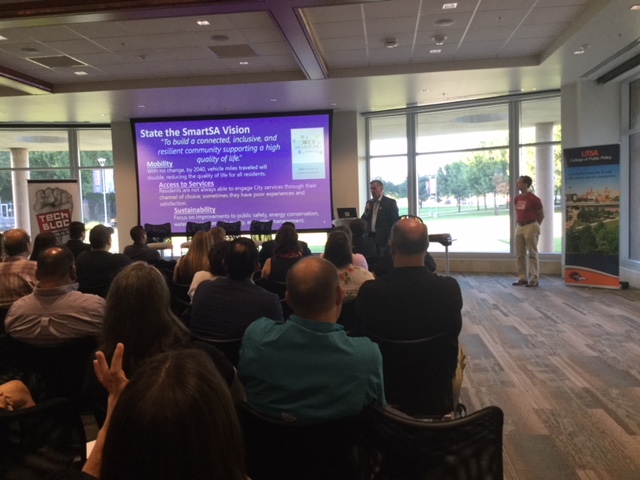
Craig Hopkins, Chief Information Officer for the City of San Antonio, talks about the SmartSA Vision.
In San Antonio 1 in 4 households do not have access to internet. It's a tough world when one cannot apply for jobs, apply for school, complete financial aid applications, pay bills, etc. Many go from one hot spot to another just to have internet capability because their place of residence does not have the infrastructure to supply broadband. "This infrastructure should be part of our plans for affordable housing," said Barton. Barton also informed the audience that broadband is a platform for all areas of economic development. Banks can now invest in digital inclusion through the Community Reinvestment Act.
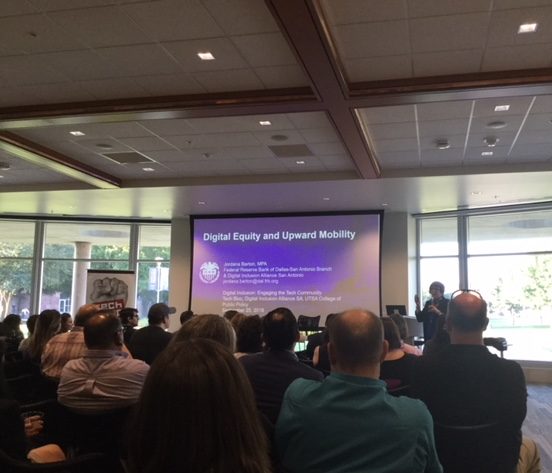
Jordana Barton talks about the why digital equity is necessary for upward mobility.
A major announcement from Alvarado took the audience by surprise, but in a good way. SAHA won 3 rd place prize of $100,000 for its solar powered Wi-Fi Project on San Antonio’s Westside. SAHA built what is called a SMARTI - a solar-powered Wi-Fi network prototype for the Wireless Innovation for a Networked Society Competition, which challenged communities to help bridge the digital divide. SAHA wants to mount multiple SMARTI nodes — which uses wireless technology to create internet access — to help serve about 1,800 residents at the Cassiano Homes development. This would serve as a major boost to increasing digital access for low income residents, since only 10 percent of residents at the Cassiano housing have access to internet. SAHA won the $100,000 from the National Science Foundation and the internet company Mozilla. These funds will help improve internet access for lower income communities throughout San Antonio.
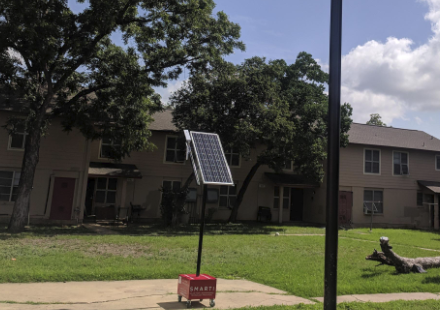
Photo by Paul Flahive, Texas Public Radio – The San Antonio Housing Authority wants to mount SMARTI, pictured, to 42 solar-powered poles in the Cassiano homes development.
After the presentations from the panelists, the event transitioned to forum-style where the panelists engaged the audience with questions. One of the participants asked a question related to the map displaying the areas of digital disparity, which were marked in red. Most of those areas were in low-income neighborhoods.
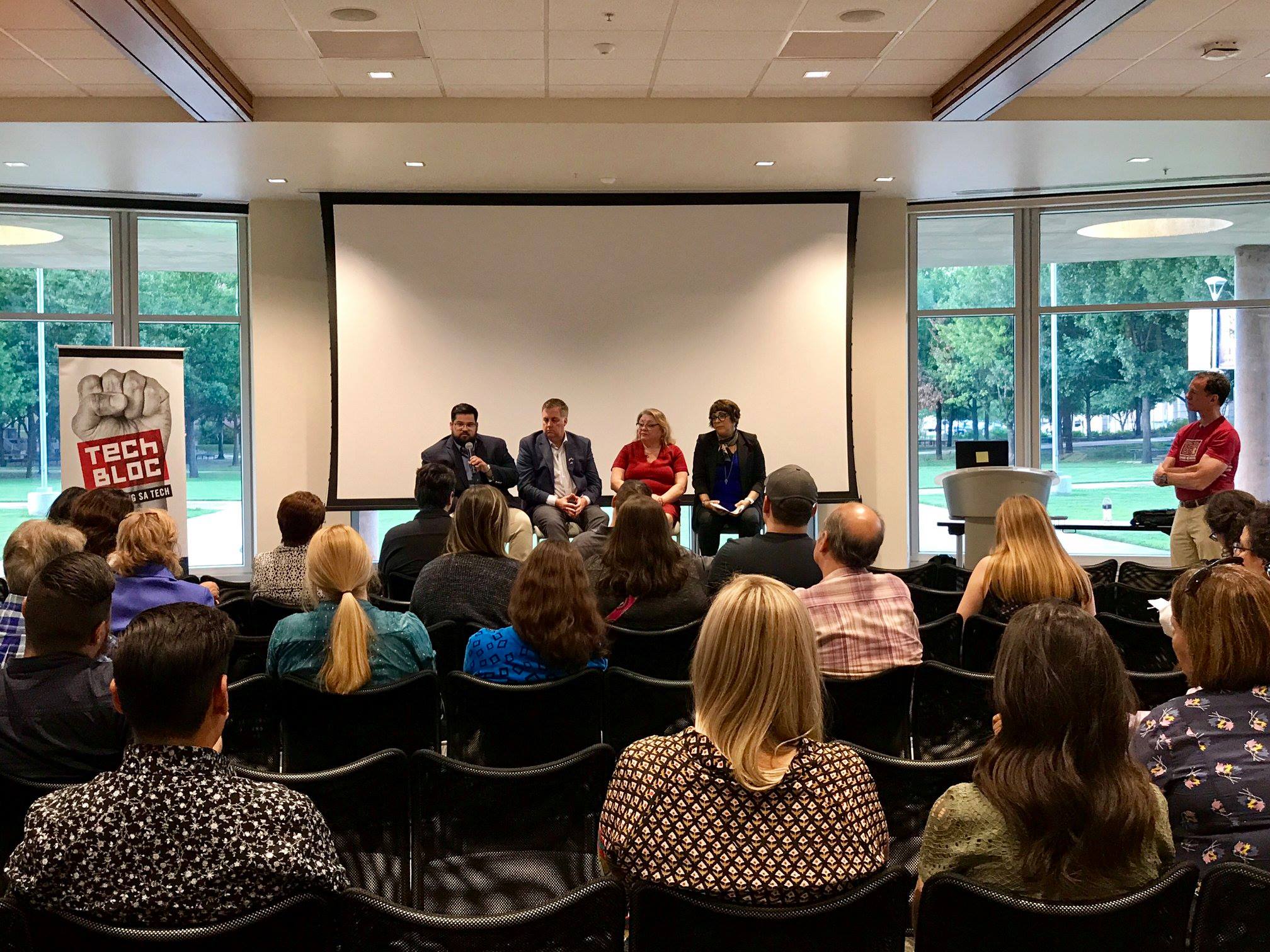
Discussion turns into forum. From left to right: Steven Hussain, Craig Hopkins, Jo Anna Alvarado, and Jordana Barton. Photo courtesy of TechBloc
“Does the red area include access to cell phones?” Hussain responded that “while more people are using mobile devices, it is challenging to take care of important business using a cellular device.” For example, if your son or daughter needs to complete a FAFSA form for financial aid, not having access to a desktop computer with internet access places him or her at a severe disadvantage since the mobile device may not allow you to upload tax information or other documents. Teachers are increasingly assigning homework that requires internet access. Students of low-income communities go to fast-food restaurants or outside of school buildings after hours to access the free Wi-Fi hot spots just to do their homework. Access and skill in using the internet is becoming increasingly important in educational opportunity.
“If you are an average citizen, what could you do to help?” asked one of the attendees. Alvarado responded and said you can join the Digital Inclusion Alliance of San Antonio. They welcome volunteers to continue the push to narrowing the digital divide.
The event celebrated of the one-year anniversary of the establishment of the Digital Inclusion Alliance of San Antonio. Organizers encouraged participants to attend the Digital Inclusion & Upward Mobility 2018 Summit taking place, on Tuesday, Oct. 30, 2018.
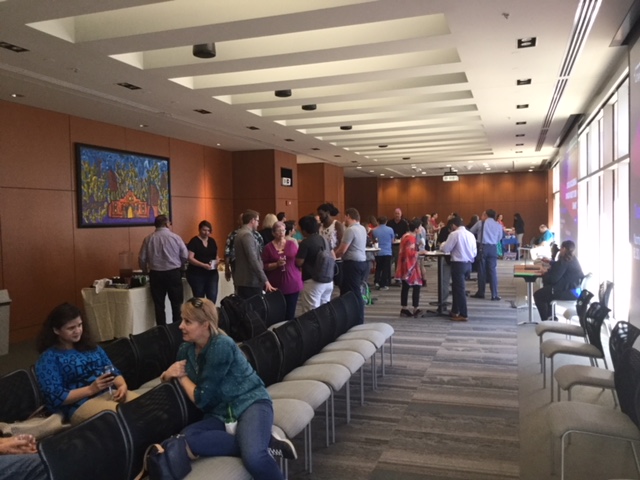
Participants gather for reception prior to the event.
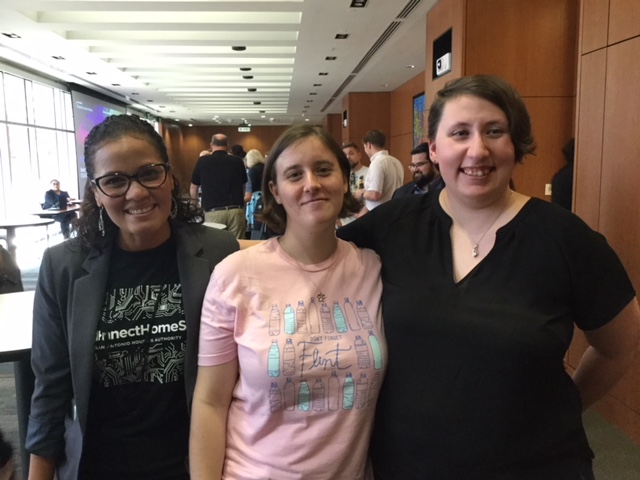
From left to right: Munirih Jester, ConnectHome Program Coordinator for SAHA and COPP alumna (Public Administration); Maria Frick, undergraduate student (Public Administration); Jamilyn Keeton, COPP alumna (Public Administration)

